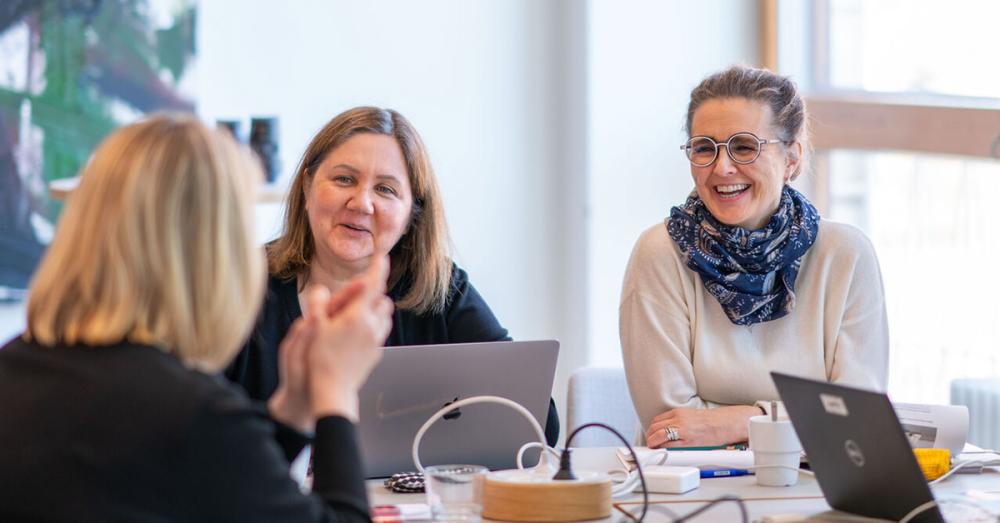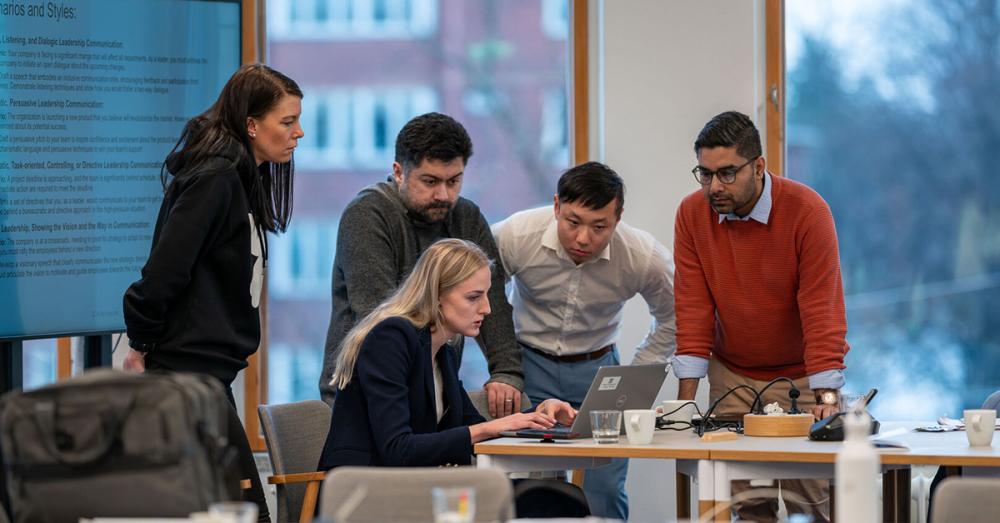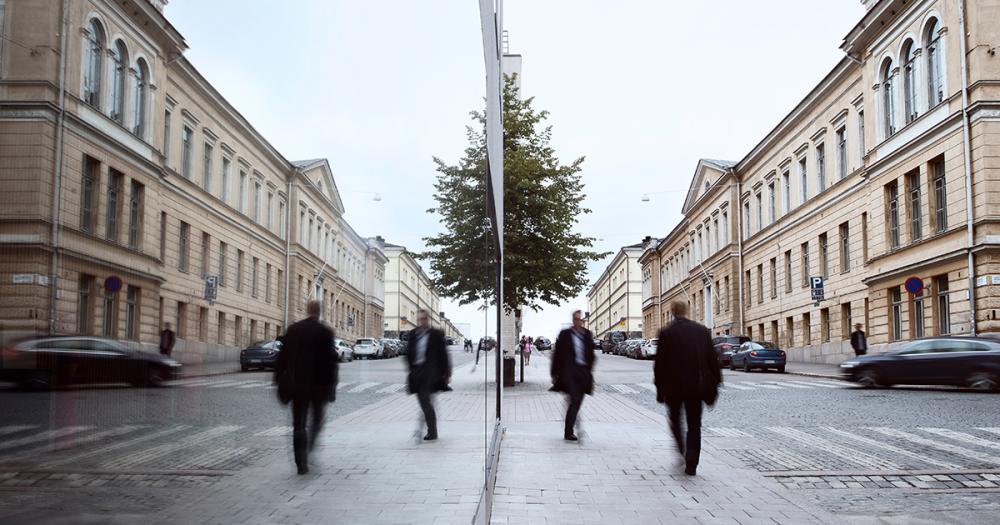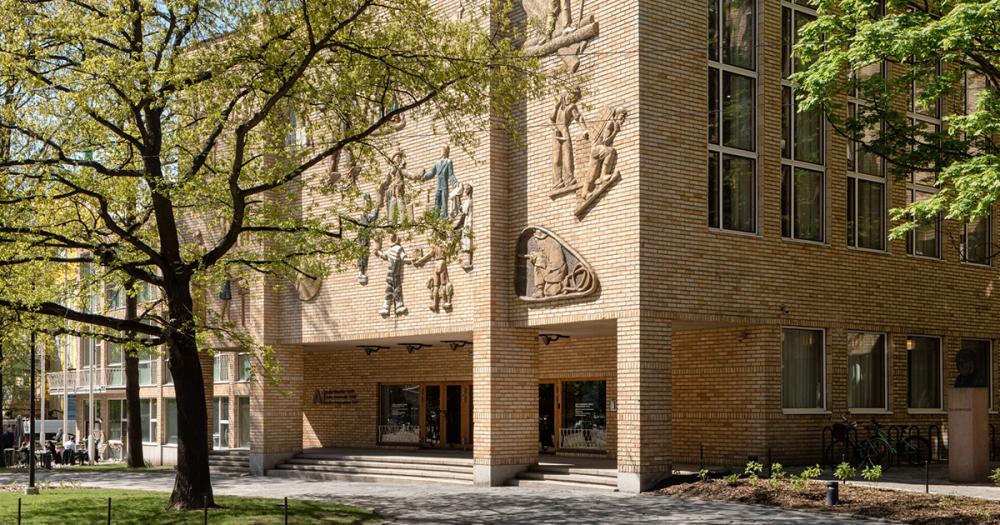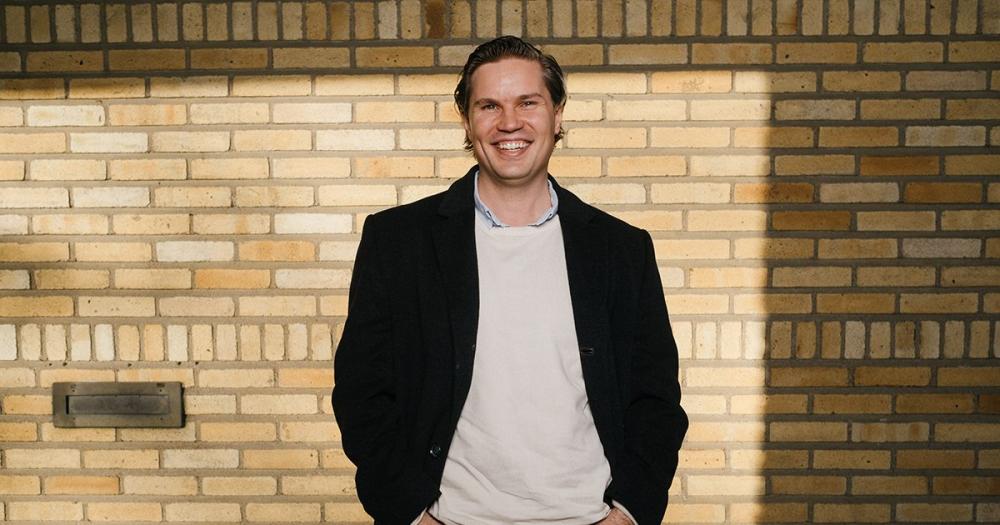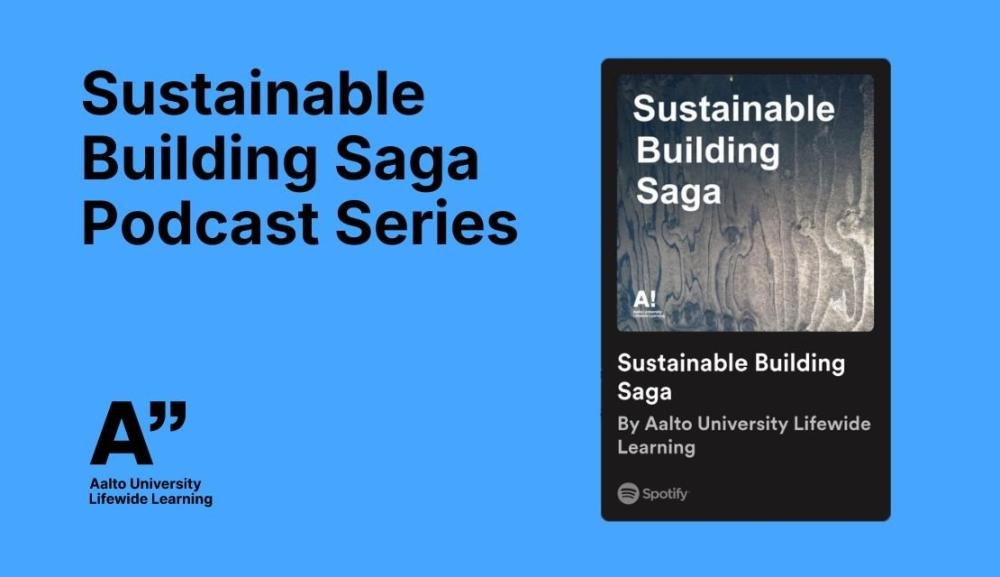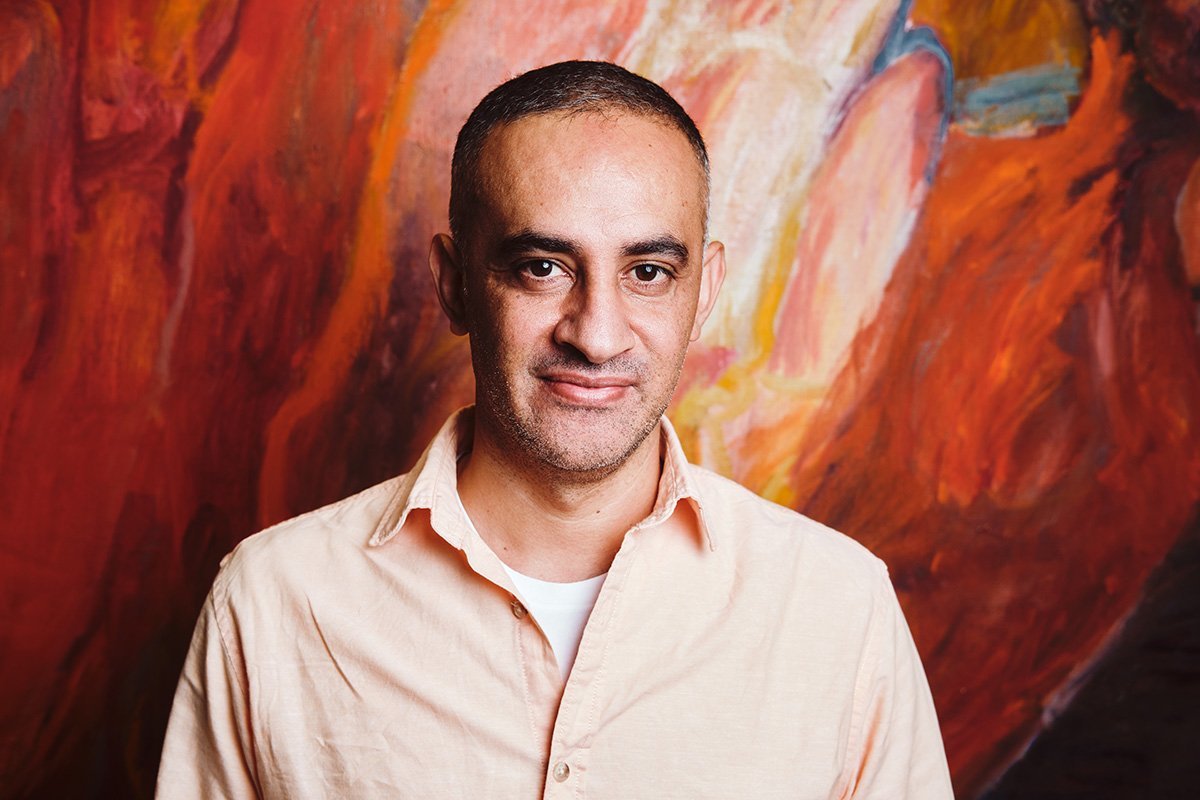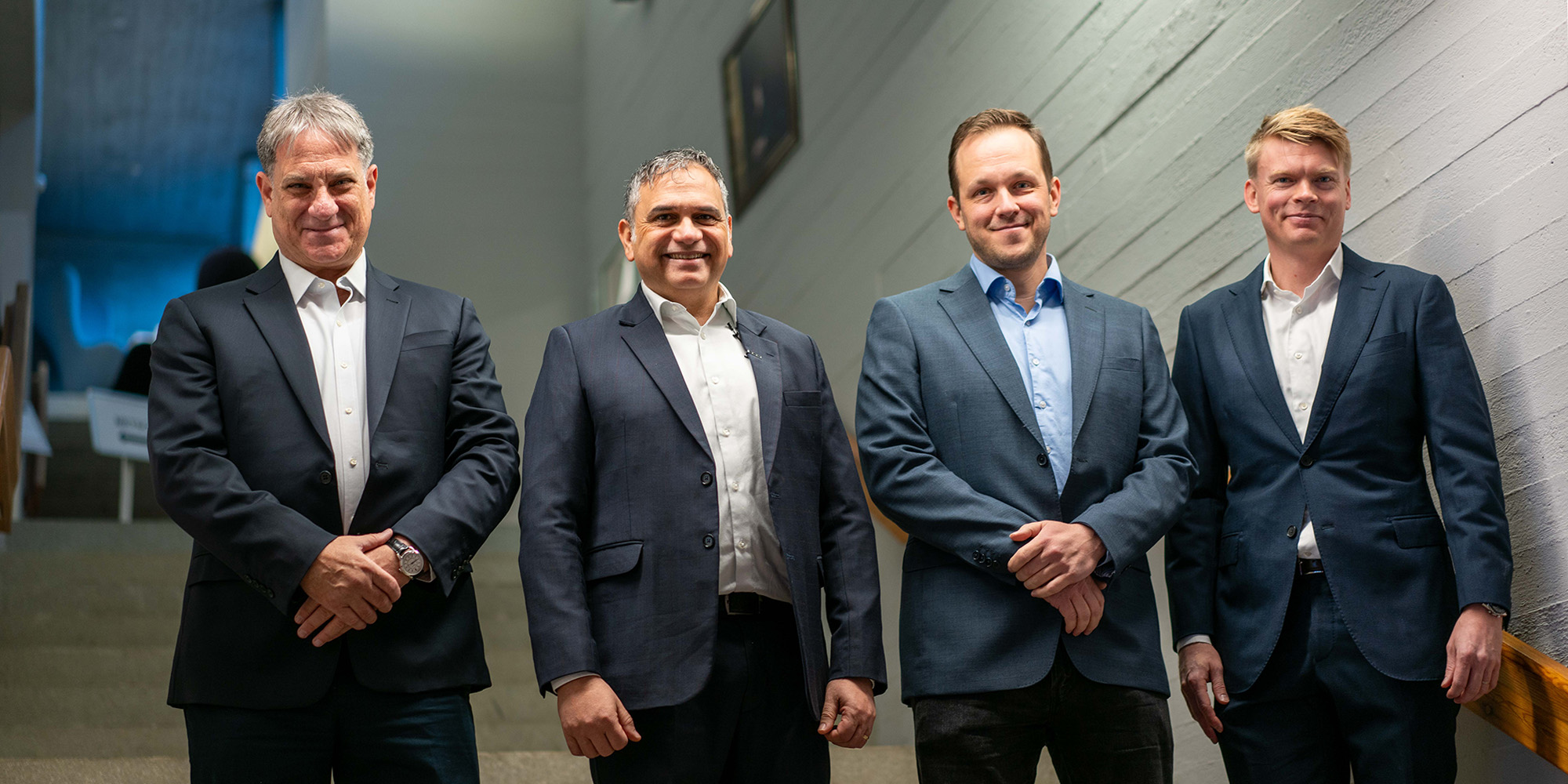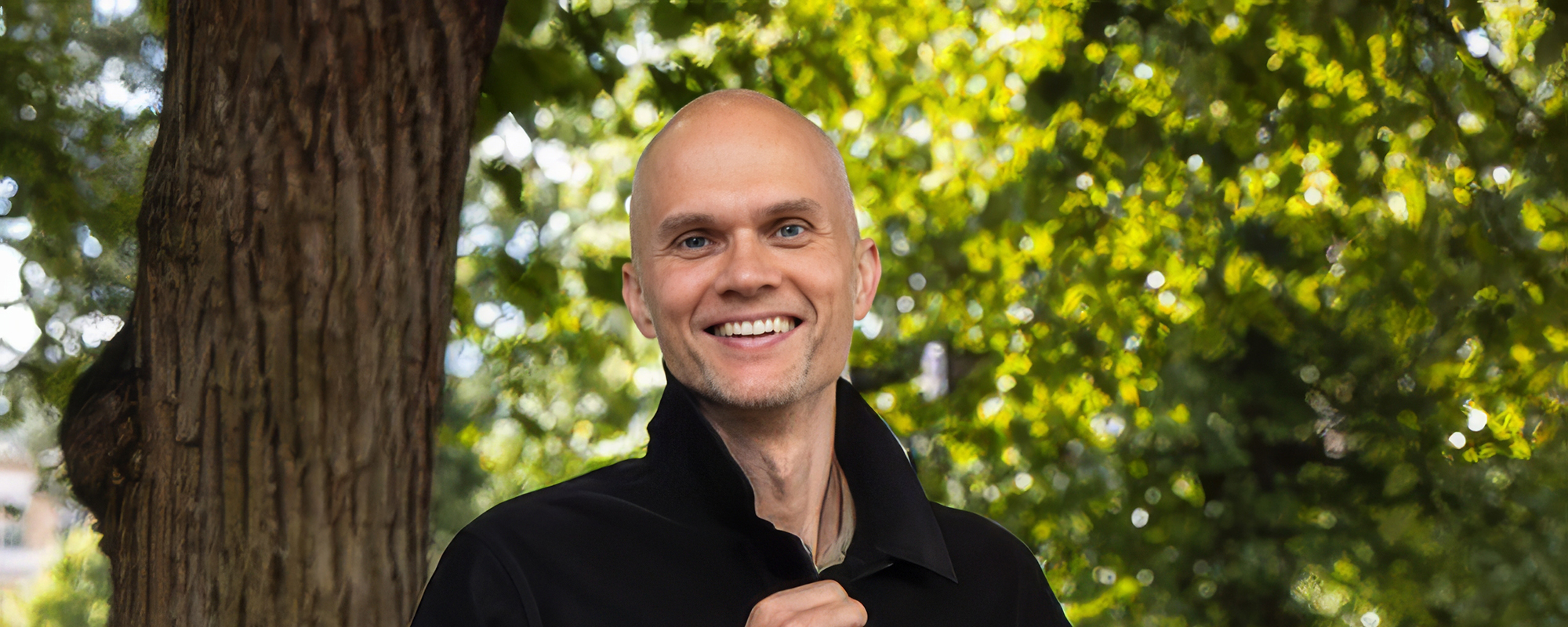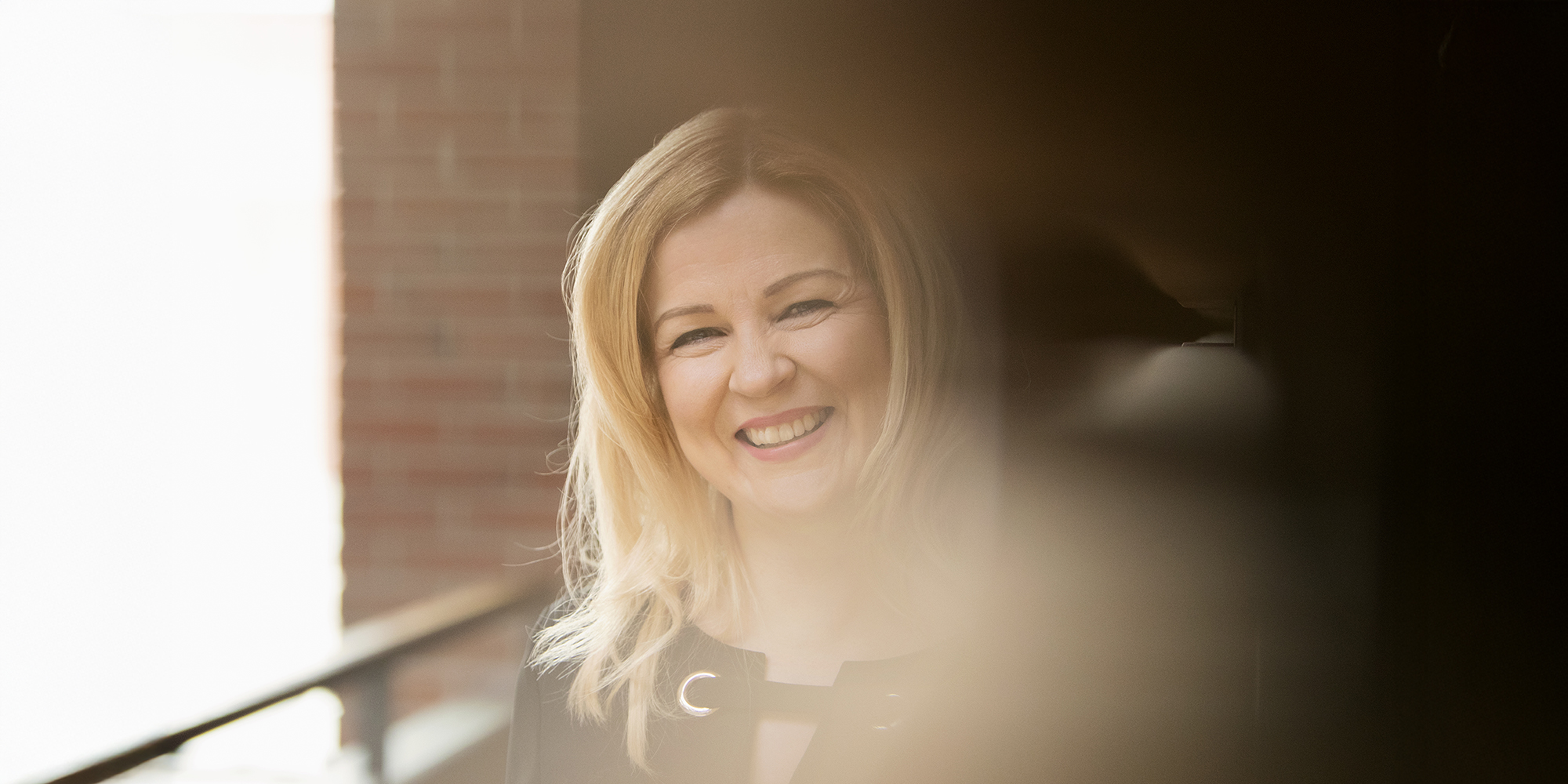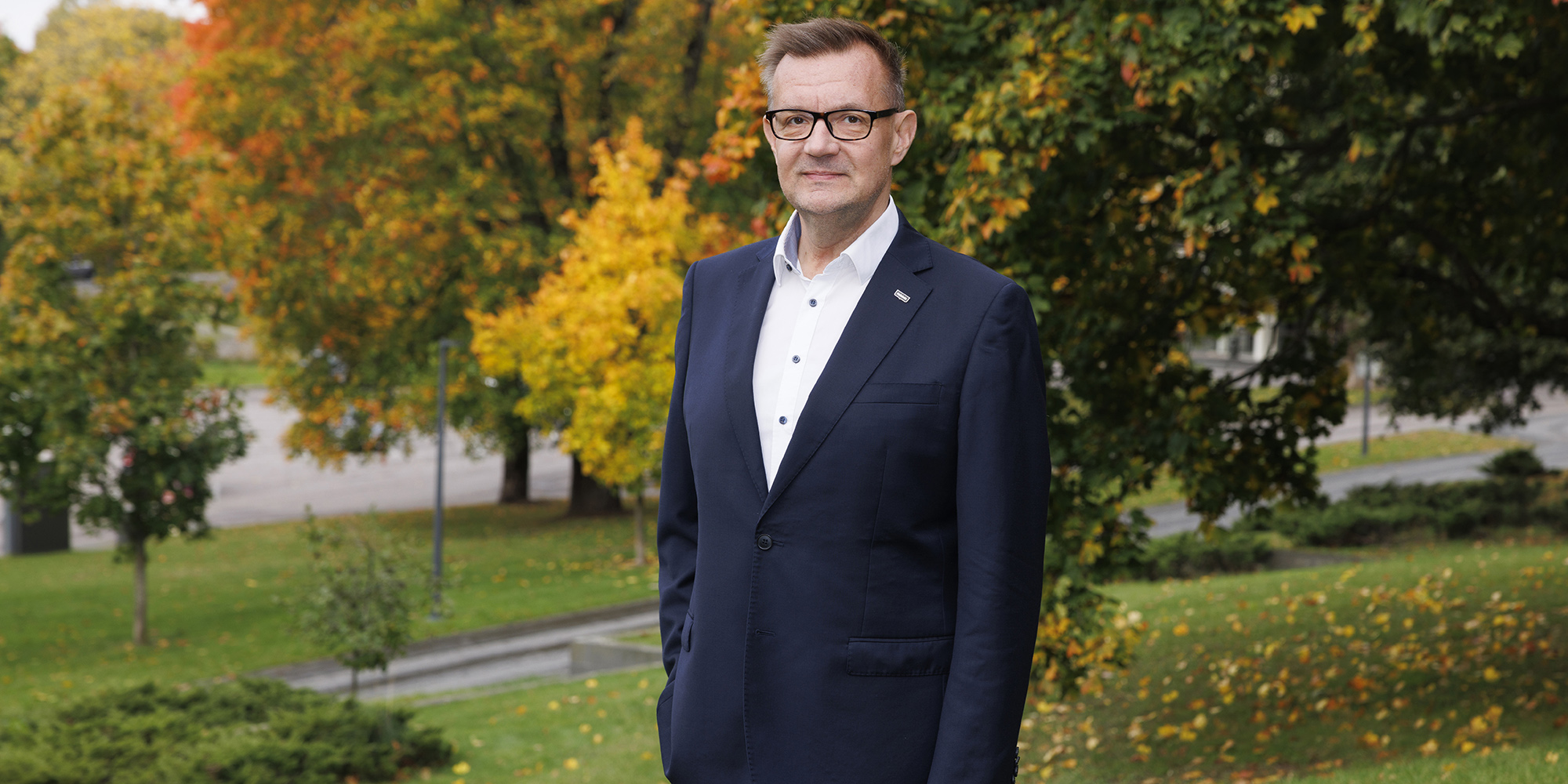In 2023, Khalil Almanasreh decided to make his long-term dream come true.
Almost fifteen years earlier, he had applied to study in a master's program at the Helsinki School of Economics, one of the predecessors of Aalto University. He wasn’t admitted at the time, but the dreams of studying at Aalto remained alive. He was attracted by the university's good reputation and made it a habit to regularly monitor what programs Aalto had to offer.
At the time of this interview, Almanasreh worked at the International Committee of the Red Cross, or ICRC, as an HR officer. His former employer of nearly ten years regularly supported the staff’s competence development: the staff could spend a certain amount of money on developing their skills in different programs.
Therefore, in 2023, Almanasreh decided to pursue his dream of studying at Aalto and applied to Aalto EE's Executive HR program. The program had caught his attention already during the Covid-19 pandemic, when the deliveries took place online.
Almanasreh, however, wanted to participate in the training face-to-face – even though he lives in Jordan. The effort, and traveling back and forth between Jordan and Finland, paid off.
“I really enjoyed it. It was one of the best trainings I've had,” says Almanasreh who recently changed jobs and now works as compensation and benefit officer at International Rescue Committee.
"I think I sent over 650 applications but didn't even make it to the interviews"
Almanasreh previously lived in Finland for five years. He has completed a master’s degree at the Lahti University of Applied Sciences (now LAB University of Applied Sciences) and studied Finnish. He also holds a Finnish citizenship.
“I like the Finnish way of studying. It makes you think outside the box. Lecturers are professional and well-prepared.”
According to his experience, studying in Finland is more than one-way lectures. It makes one think, wonder, and then try and apply what has been learned into practice.
I like the Finnish way of studying.
It makes you think outside the box."
Almanasreh's wife, who is a high school math teacher, is Finnish. The family would have liked to stay in Finland after Khalil graduated, but finding a job proved challenging.
“I couldn't find a job for five years. I think I sent over 650 applications but didn't even make it to the interviews. So, it was decided that it is time to move and look for a new place. That's how I ended up in Jordan.”
His job at ICRC included typical HR tasks but also opportunities to participate in humanitarian missions. Almanasreh spent, for instance, three months working in Ukraine.
"I had never studied anything similar"
In the Executive HR program, Almanasreh's interest was piqued by the program's strong emphasis on humanity, including topics related to emotional intelligence.
This was not because he thought the emphasis was particularly important – instead, he wanted to understand what kind of a link to his day-to-day work they actually have.
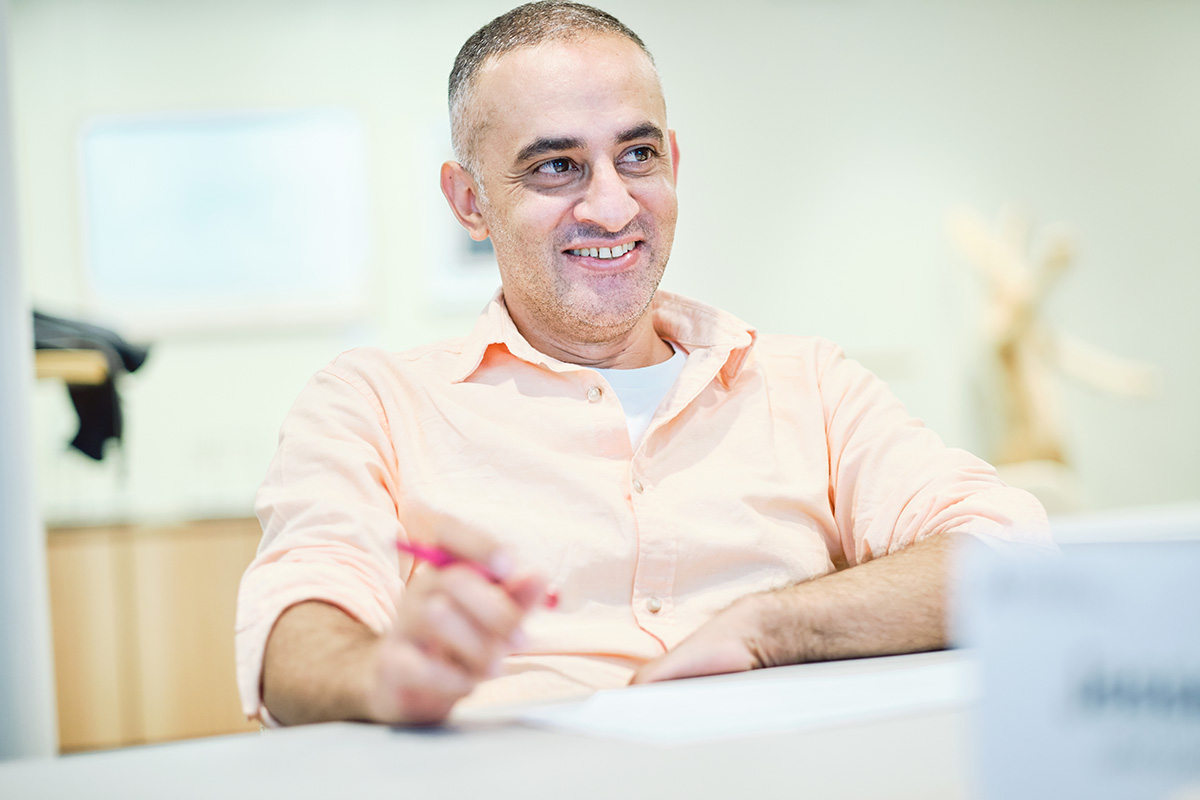
The words of instructor Hertta Vuorenmaa stayed on Khalil Almanashreh's mind: if a company isn't interested in its own people, it's a good reason for them to leave. Photo: Junnu Lusa
“Professional HR courses typically focus on talent management or other areas of HR, but this program spoke above all about emotional intelligence and how to consider emotions when implementing an organizational strategy,” Almanasreh says.
He was inspired to understand that there was a link between the two.
“I had never studied anything like this before. I kept wondering what this emotional intelligence might be about and how it is possible that a whole module is focusing on it. I thought it should only be a small part of the whole.”
I kept wondering what this emotional intelligence
might be about and how it is possible
that a whole module is focusing on it."
In the first module of the program, the group was trained by Hertta Vuorenmaa, a lecturer at Aalto University and a working life researcher.
Vuorenmaa said something that Almanasreh says he will always remember: if a company isn't interested in its own people, it’s a good reason for them to leave.
"It made me think differently"
Another topic that stood out from the program contents was how our way of communicating and expressing emotions differs in different cultures.
The Executive HR program helped Almanasreh notice how everyone looks at the matter from their own point of view.
It is of utmost importance that leaders and supervisors understand this. For example, in meetings, each participant interprets what they hear and see from their own perspective.
“That has influenced the way we run meetings and sessions. It made me think differently.”
I'm more aware than before.”
Almanasreh says that, in his previous life, he was used to the fact that one’s personal life should not be visible in the workplace. When team members came to talk about their problems, it was normal at his workplace to consider it unprofessional and something that is unrelated to work.
“Now I'm more aware than before.”
During the Executive HR program, it was also discussed how to predict the future of HR. According to Almanasreh, it made him think about his own role more strategically than before.
In addition, many concrete tools learned during the program have remained in his team’s daily use.
A good leader gives responsibility, collaborates and grows together with their team
In Almanasreh's opinion, Aalto EE’s instructors didn't just teach – rather, they facilitated information acquisition and learning.
The program changed his perception of what good leadership looks like.
“I used to think that a leader is someone who obeys the rules and manages their team. Now, after this program, I rather think that a leader needs to give their team responsibilities, collaborate, and grow together with the team.”
A good leader lets their team member do their job in the way the team member prefers – not in the way that the boss thinks is the best way. This is important, as that makes the employees take ownership of their work and increases their willingness to develop and improve.
Almanasreh believes that he will be working in HR in five years of time. However, at one point he would like to fulfill yet another dream; he would love to move back to Finland and find a job in an international company in Finland.

